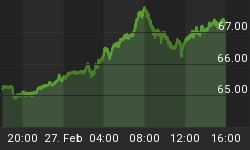Dropping tax revenue, rising unemployment and yawning budget gaps are wreaking havoc in states from Arizona to Wisconsin, a new report shows.
CNNMoney reports 10 states face financial peril.
The same economic pressures that pushed California to the brink of insolvency are wreaking havoc on other states, a new report has found.
The 10 most troubled states are: Arizona, California, Florida, Illinois, Michigan, Nevada, New Jersey, Oregon, Rhode Island and Wisconsin.
Other states -- including Colorado, Georgia, Kentucky, New York and Hawaii -- were not far behind.
The list is based on several factors, including the loss of state revenue, size of budget gaps, unemployment and foreclosure rates, poor money management practices, and state laws governing the passage of budgets.
In a separate study released Wednesday, the Center on Budget and Policy Priorities found that states will likely have to make steep cuts in their fiscal 2011 budgets, which start next July 1 in most states. That's because the critical federal stimulus dollars will run out by the end of 2010.
These cuts could take nearly a percentage point off the national gross domestic product and cost the nation 900,000 jobs, the study found.
The Center on Budget and Policy Priorities, a liberal research group, says the states need additional federal fiscal relief to avoid budget cuts that will hurt both the economy and people. State and local spending accounts for about one-eighth of the GDP.
And in California, Gov. Arnold Schwarzenegger said Tuesday that his state is facing a budget gap of up to $7 billion. The state will likely announce across-the-board spending cuts in January.
"So we just have to hang in there, tighten our belts and live within our means," he said.
The center would like to see the federal government allocate another $50 billion, while economist Mark Zandi said about half of that would be needed. Congress should pass the additional aid now since states are currently crafting their fiscal 2011 budgets.
Budget projections show that states could face deficits as large as $260 billion in 2011 and 2012 after stimulus funding is exhausted. State economies usually take up to two years longer to recover after the nation's fiscal health begins to improve.
New budget cuts and tax increases "will be a serious drag on the economy at just the wrong time," said Mark Zandi, chief economist at Moody's Economy.com.
Without assistance, the economy could slide back into a recession, he said
CNNMoney lists the problems facing each state in the list. Inquiring minds may wish to take a look.
Stimulus Not Needed
I am sick of economists like Mark Zandi who think the answer is to print more money.
The problem is state budgets are bloated with overpaid bureaucrats who ought to be fired. Services that are needed out to be privatized to eliminate problems with pension fundings.
Throwing more money at the problem just raises future liabilities while adding to interest on the national debt. Worse yet, throwing money at it masks the structural problem that needs to be addressed.
If you throw money at the problem, unions will claim there is enough money and benefits do not need to be cut. Keep throwing money at the problem and you create a currency crisis everyone has to live with.
The time to address the problem was 10 years ago. Zandi wants to postpone the problems still further. Then he will ask for more, then more, then more, never bothering to look at history and see how failed Keynesian and Monetarist policies failed spectacularly in Japan.
We are in this mess because of loose money policies. Sadly, politicians listen to economists like Zandi when common sense alone would suggest that you cannot cure budget deficits by going deeper in debt.
Keynesian Claptrap History Lesson
Those needing a history lesson should consider How "Something For Nothing" Ideas Become Policy and the Real Lesson of Japan's Lost Decades as noted in Is Debt-Deflation Just Beginning?
The only reasonable comment in the CNNMoney article comes from Arnold Schwarzenegger who said "So we just have to hang in there, tighten our belts and live within our means."
Now if only the governor and the California legislature would practice what he speaks. Don't count on it as long as "free money" is being sloshed around.















